

The voices of doom and decline say that high-speed rail cannot be built in California. They’ve tried to stop the forces of progress by calling high-speed rail “a boondoggle” and “a waste.” This is not a new phenomenon. Enemies of progress said the same thing about the Golden Gate Bridge, built in the middle of the Great Depression. They screamed “boondoggle” at every major public works project in the 20th century while California was constructing a world-class infrastructure of freeways, dams, bridges and aqueducts that fostered a golden age of middle-class growth.
The labor movement rejects the voices of doom, because we have a vision for California. We know it’s time to invest in California’s future, starting with construction of high-speed rail.
Wednesday, the voices of progress and investment won a significant victory — Governor Brown signed SB 1029 to fund construction of a high-speed rail system.
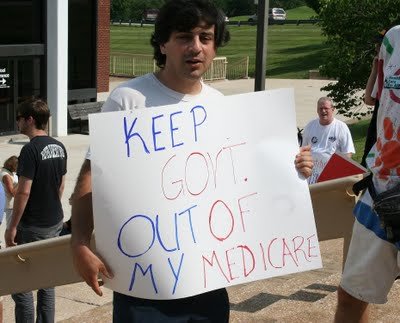
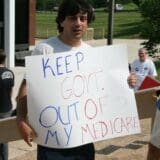
Within the padded walls of the House of Representatives, few agenda items consume more time than figuring out how to overturn President Obama’s health care reform law – and, looking down the road a little, how to scuttle Medicare as we know it. These two causes, along with countering the daily menace of Sharia law at the county courthouse, are what make certain conservatives get up early in the morning. Yet now a Commonwealth Fund survey shows that when it comes to Medicare, at least, most senior citizens are quite happy with the government-provided service they receive.
According to the survey, “Only eight percent of Medicare beneficiaries age 65 or older rated their insurance as fair or poor, compared with 20 percent of adults with employer-sponsored insurance and 33 percent of adults purchasing coverage in the individual market.”
Who would want to fix something so obviously not broken?
» Read more about: WebHot: Seniors Don't Agree With Right's Medicare Vision »
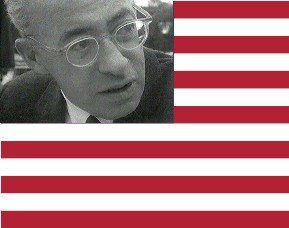
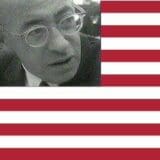
In the 1960s and ’70s, Saul Alinsky, often considered the founder of community organizing, was a popular figure among liberal activists, based primarily on his how-to manuals, Reveille for Radicals and Rules for Radicals, and his reputation as a tough-talking, street-smart agitator who helped poor and working-class Americans gain a voice in battles with politicians and corporations. Now the Republican Party and its right-wing echo chamber are trying to make Alinsky, who died at 63 in 1972, famous all over again, by linking him to Barack Obama and demonizing the president as a dangerous radical.
During his primary campaign, Newt Gingrich constantly invoked Alinsky’s ghost. “The centerpiece of this campaign, I believe, is American exceptionalism versus the radicalism of Saul Alinsky,” he said in stump speeches and television appearances. Or variously: “If you believe as we do in the Declaration of Independence and you think that’s a better source than Saul Alinsky,
» Read more about: Why Saul Alinsky Is Still Scaring Conservatives »


You don’t have to be a recent homeowner to know how precarious the housing market has been since the bubble popped in 2007. Consider this, for example: Today half of all San Bernardino County homeowners have to put on scuba gear to view their mortgages. Last week, however, just as that county toyed with the idea of seizing such homes through eminent domain, there was a bright spot. Governor Jerry Brown signed into law (to take effect January 1, 2013) the Homeowner Bill of Rights, a consolidation of several bills that had been strongly pushed by state Attorney General Kamala Harris.
The HBR offers several solid benefits to homeowners, but two stick out:
» Read more about: State Gives Struggling Homeowners a "Fighting Shot" »


If you’ve been following media coverage of the battle over Walmart’s proposed store in Chinatown, you probably have the impression that the fight is between the retail giant and labor. Chinatown leaders have been largely absent from press reports of the controversy, and to the extent they are mentioned one would think they want Walmart in their neighborhood.
Thursday’s hearing at the L.A. City Planning Commission should set the record straight — Chinatown doesn’t want Walmart, and residents and business owners are loud and clear about it for anyone who is paying attention.
The hearing was on the proposed Interim Control Ordinance (ICO) for Chinatown, which would temporarily stop chain stores over 20,000 square feet from opening in that community. By a vote of 14 to 0 the Council directed the Planning Department to draft the ordinance back in March, but staff dragged its feet for more than three months.
» Read more about: Walmart’s Bureaucratic Victory Can’t Mask Growing Opposition »


Los Angeles was granted its anticipated funding for America Fast Forward, a project aiming to expedite construction of more extensive and functional public transportation systems. The project’s approval is a victory for both the people of Los Angeles and Mayor Villaraigosa, who has been supporting it for years.
America Fast Forward is a provision of a larger transportation bill approved by Congress in late June and signed into law by President Obama last week. The $100 billion package, which received rare bipartisan support, will reduce harmful emissions, fund the construction of mass transit projects in multiple cities and create thousands of jobs throughout the country.
That’s the good news. On the downside, the law — which hardly resembles earlier versions of the legislation — cuts funding for a number of important programs and puts off critical decisions by only providing monies through 2014.
L.A.’s program would initially be funded by the Transportation Infrastructure Finance and Innovation Act (TIFIA),
» Read more about: A Good News-Bad News Transportation Law »
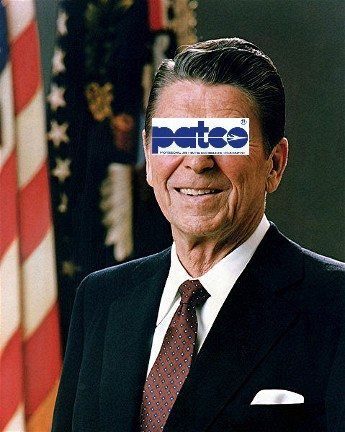

Much has been said in recent months about the labor movement’s “impending decline,” with the right wing’s unrelenting attacks against collective bargaining rights in states across the country, from Arizona to Wisconsin to New Jersey. California is facing its own version of this attack with the qualification of the Paycheck Deception initiative for the November 2012 ballot that would dramatically curtail working people’s ability to participate in politics in the state.
Many people in the modern progressive movement date the beginning of these assaults to Ronald Reagan’s 1981 decision to fire 12,000 air traffic controllers after their union, PATCO, went on strike and shut down the nation’s airports. President Reagan’s decision to permanently fire (and prohibit any rehire of) all the controllers destroyed PATCO and served as the starting-pistol shot for three decades of attacks on the right to collective bargaining, that continue today.
» Read more about: How PATCO Crashed – But Why Unions Don’t Have To »


(The following post appeared on the blog of the International Association of Machinists — IAM.)
If the Trans Pacific Partnership agreement (TPP) is signed into law at the end of this year, the rules for international trade and the global economy will change dramatically, and not for the better.
Despite the potential for the TPP to negatively impact hundreds of thousands of American jobs, the negotiations to create the massive trade pact are being conducted in unprecedented secrecy. Access to the pact’s draft language is limited almost exclusively to a handful of government negotiators and corporate advisers.
Among those denied access to the pending terms of the trade deal was Senator Ron Wyden (D-OR), chairman of the U.S. Senate Finance Subcommittee on International Trade, Customs and Global Competitiveness. Outraged, Wyden responded with a bill demanding greater transparency in the negotiations. Over 130 members of Congress also took action,
» Read more about: Trans Pacific Partnership: Exporting US Jobs »


On July 3 the Asian Pacific American Labor Alliance (APALA) and United Food and Commercial Workers Local 770 filed a lawsuit challenging the City of Los Angeles’ handling of Walmart’s controversial Chinatown store project.
The suit alleges that the L.A. City Department of Building and Safety failed to notify the public of its decision to issue a Notice of Exemption (NOE), which allows Walmart to move forward on its Chinatown project without environmental review. The lawsuit also asks a judge to stop construction at the store.
The plaintiffs in the lawsuit are asking a judge to find the exemption invalid and require that a new one be issued. Because the building permits are being appealed – an initial hearing is expected in August – the lawsuit argues that the exemption should not have been issued until the appeal process was exhausted.
The notice to the public of the exemption is intended to prevent the appearance of backroom deals.
» Read more about: Lawsuit Challenges City’s Actions on Walmart Chinatown Store »


Even as more Los Angeles politicians are pledging to refuse contributions from Walmart, one candidate with Walton family support placed third in the closely-watched June 6th primary for Assembly District 46 in L.A.’s San Fernando Valley.
Charter school champion Brian Johnson lost the race despite massive independent expenditures on his behalf by political action committees, including two that are closely tied to Carrie Walton Penner and her husband Greg Penner. Ms. Penner is the daughter of Walmart Chairman Rob Walton and Mr. Penner is a member of the Walmart Board of Directors.
PAC spending was widely expected to carry Johnson into the general election. But in the end it may have hurt more than it helped.
Johnson was put on the defensive by winning candidate Adrin Nazarian’s charge that “right-wing anti-teacher organizations funded by the owners of the Walmart Corporation are spending hundreds of thousands of dollars to elect Brian Johnson to the Assembly.”
Johnson’s campaign issued a response which implied that Nazarian’s claim was unfounded,
» Read more about: Los Angeles Election: Walton Family Values? »
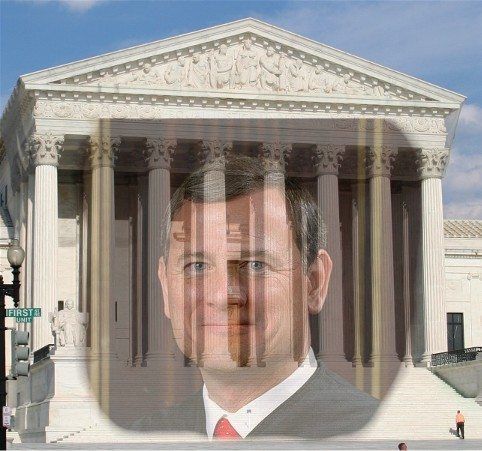

Right now former President George W. Bush, who appointed John Roberts as Chief Justice, must be having a Dwight Eisenhower moment.
When Eisenhower nominated California’s Republican governor Earl Warren to be the Chief Justice of the Supreme Court in 1953, he thought he was appointing a conservative jurist. Later, Eisenhower reportedly said that appointing Warren, who took the Court in an unprecedented liberal direction, was the “biggest damn fool mistake” he had ever made. (Warren is one of the people I profile in my new book, The 100 Greatest Americans of the 20th Century: A Social Justice Hall of Fame).
Chief Justice Roberts is a far cry from Earl Warren. Indeed, the Roberts court has been one of the most conservative in history.
But we can be grateful for Roberts’ decision to side with the 5-4 majority to uphold the Obama health care reform law.

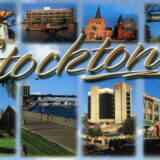
My hometown just declared bankruptcy. No, not the town I was born in, and not the place I have lived most of my adult life, but where I grew up. Stockton, with a population of about 300,000 is the largest city in America to file for Chapter 9 protection. Conventional wisdom says it was the unfunded pension liability or mismanagement or too much debt, and under state guidelines for bankrupt cities, somebody has to take the blame. But the choices that led to this debacle go back decades.
When I left Stockton in the mid-1960s for college, it was a divided city. The affluent and mostly white people lived on the north side. The “others” lived to the east and south. Others were people who worked with their hands, people who picked the fields, people who worked the seasonal canneries. These were mostly low-wage workers, sometimes no-wage workers who turned fresh produce into food for supermarket shelves across the country.
» Read more about: Stockton Bankruptcy: Fat City’s Missed Opportunities »
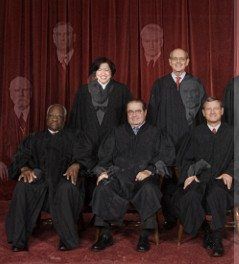
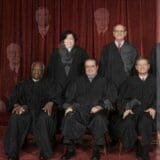
The 1936 Republican presidential candidate, Alf Landon, based his bid to defeat FDR on repealing Social Security. In a campaign speech Landon promised: “We must repeal. The Republican Party is pledged to do this.” That year’s election night tally revealed who was in touch with Americans and who wasn’t. FDR: 523 electoral votes; Landon: 8 electoral votes.
And another crazy coincidence. In 1937, U.S. Supreme Court Justice Owen ROBERTS switched his vote and found the Washington state minimum wage constitutional (from an earlier N.Y. case in which the high court had found the minimum wage unconstitutional).
Two weeks later, the Supreme Court found the National Labor Relations Act constitutional. Two days after that a U.S. Appeals Court ruled that Social Security was unconstitutional. Six weeks later, the Supreme Court found it constitutional.
» Read more about: Court Ghosts: And You Thought Obama Had It Tough »


As Duke Law School professor Jed Purdy explained yesterday in his sensible, humane and far-sighted take on the Court’s decision on the Affordable Care Act:
“Justice Roberts’ opinion makes him a hero for a day to many liberals. It also moves the Court, at a stately pace, toward an aggressively right-wing view of the federal government’s power. Moreover, it keeps the Court at the very heart of issues where it does not belong. For all its obvious appeal, it is self-aggrandizing and far more radical in its reasoning than in its outcome. That reasoning may have serious consequences down the road.”
Purdy refers in part to Justice Roberts’ endorsement of a narrow view of the Commerce Clause shared by the dissenting justices (Kennedy, Alito, Scalia, and Thomas), who would have struck down the Act in its entirety. (Roberts allowed the individual mandate to stand on the strength of Congress’ constitutional power to tax.
» Read more about: Roberts Rules: Why the Obamacare Victory Is No Win »


Update: KPPC FM’s Hayley Fox reports that L.A. City Councilwoman and mayoral candidate Jan Perry is also declining Walmart campaign funds.
Los Angeles’ two top mayoral candidates announced Thursday they will not accept campaign contributions from Walmart, which is locked in a battle with community and labor groups over the retail giant’s plans to open a 3300-square-foot grocery store in Chinatown.
The pledges by L.A. City Councilman Eric Garcetti and his chief opponent, City Controller Wendy Greuel, bring new focus to Saturday’s protest march and rally against Walmart. Both candidates have endorsed the June 30 action.
“Los Angeles loses if we run a race to the bottom in terms of wages and working conditions,” Garcetti said. “Our economy needs good middle class jobs to get back on track, and that’s what we should be working toward.”
The two candidates urged other elected politicians to also refuse money from Walmart.
» Read more about: Garcetti and Greuel Take the Pledge: No Walmart Money »
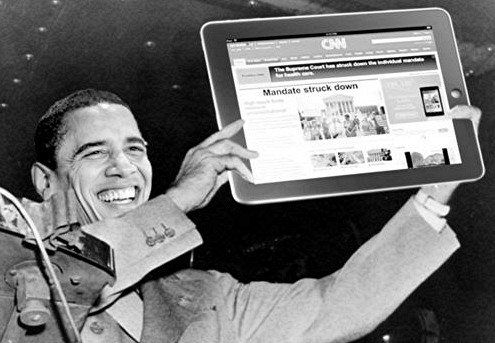

By a 5-4 vote, the U.S. Supreme Court has upheld most provisions of the Affordable Care Act. In the court’s most closely watched decision in decades, the majority ruled ACA’s provision mandating that individual citizens enroll in health-care programs was a constitutional imposition of a tax. On the other hand, the justices ruled against the expansion of Medicare.
A statement issued by California’s United Nurses Associations of California/Union of Health Care Professionals hailed the court’s decision. The statement quoted union Secretary-Treasurer Barbara Blake, RN:
“This is not just an abstract legal decision. Real lives and the heartbreak of real families will be saved because of it. We’ve got more people in California dying each year because they don’t have health insurance than any other state in the country. But thanks to the Affordable Care Act, the vast majority of us will be covered.”
See these stories:
New York Times (“HEALTH LAW STANDS”
Los Angeles Times (“Healthcare law upheld as a tax measure”)
Washington Post (“What the Supreme Court’s decision on the health-care law may mean for you”)
Talking Points Memo (“SUPREME COURT UPHOLDS ‘OBAMACARE’”
» Read more about: Split Court Vote Upholds Most of Affordable Care Act »


Last week the activist right-wing majority of the United States Supreme Court –in a radical departure from well-settled jurisprudence — further weakened the ability of labor unions to engage in meaningful political activity. The decision has been largely overshadowed by the Court’s ruling on Arizona’s S.B. 1070, and by its anticipated ruling on the Affordable Care Act. Yet, as far as the viability of the labor movement is concerned, the significance of this decision can scarcely be overstated.
In Knox v. SEIU, Local 1000, the majority opinion displayed an unprecedented level of concern for the First Amendment rights of a minority of public-sector employees – but only insofar as those rights limit the ability of labor unions to speak politically. The case arose from SEIU’s state-wide response to several anti-union voter propositions in California. The initiatives were announced after the union had already determined and sent out notices for dues for the coming year.
» Read more about: Crass Warfare: Supreme Court Attacks Unions »
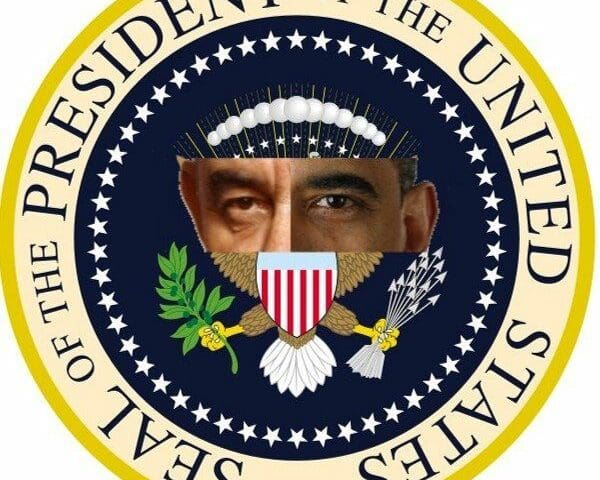

Reading [Robert] Caro’s biographies of LBJ has become a multi-generational experience in our family. At 15, my son, who had never read anything more than Harry Potter, became enthralled with them, devouring the first three. This year, he bought the newest volume as my birthday present, I got my dad the book for Father’s Day, and my dad gave the book to my son for his birthday.
Much of our great fascination with Lyndon Johnson is the duality of his character: willing to lie and cheat, devoid of any principles on his path to power, and then as president, using that power to achieve lofty, principled goals that transformed our nation forever.
As Caro describes in the latest volume, The Passage of Power, as LBJ was preparing to address Congress just after assuming the presidency, “a fierce debate” between his advisors “erupted – over the emphasis to be given in the speech to civil rights.” As the discussion went on until 2:30 in the morning,


It was Grover Norquist who famously said he wanted to shrink government to a size where he could drown it in a bathtub. Norquist’s Paulist allies in Congress (Ron Paul, Rand Paul, Paul Ryan) show no interest in stopping there, however, and probably would go after the bathtub next – or at least indoor plumbing. Of course, things like indoor plumbing and electricity are some of the creature comforts that were brought to millions of Americans by their federal government decades ago, because private enterprise saw no immediate profit in spreading such “luxury” to everyone. Without New Deal programs such as the Rural Electrification Administration, Tennessee Valley Authority and Farm Security Administration, many of us might still be sitting in the dark, as well as sitting – well, elsewhere, if you get my drift.
It’s become bad manners today, however, for government to remind us of the things it does for Americans – or rather,
» Read more about: "Drowning" Government: Be Careful What You Wish For »


Earlier this week, we reported on changes that are needed in the medical cannabis industry. Well, this Friday (June 22), the L.A. City Council takes up two competing proposals for how to deal with an industry that’s gotten out of control.
On the one hand, L.A. City Councilman Paul Koretz and Council President Herb Wesson have made a motion to direct the City Attorney to draft an ordinance that will allow patients limited safe access to responsible operators. The City Attorney would develop an ordinance that establishes strict guidelines for dispensary operations and subject them to city oversight.
This should curb the sorts of abuses we’ve read about, reduce the number of dispensaries, maintain high-road jobs and allow continued access of patients to their medicine.
On the other hand, Councilmen Jose Huizar and Mitchell Englander have proposed a so-called “gentle ban.” But far from being gentle,
» Read more about: Council Dispensary Vote: Compassion or Weed Wacking? »